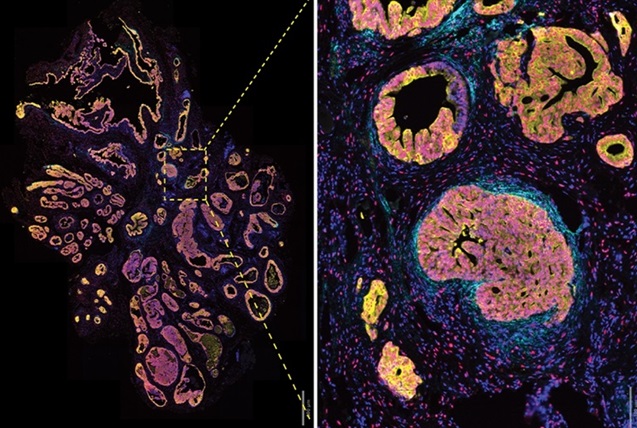Prognostic Test to Help Predict Prostate Cancer Metastasis
Posted on 26 Jan 2024
Stromal cells, non-cancerous cells present in all organs, play a key role in wound healing, blood vessel formation, and providing structural support to tissues. Recent research has shown that tumors often manipulate these stromal cells to create an environment conducive to their growth and survival. However, the exact functions of stromal cells in various cancers are just beginning to be understood. Now, a new study has revealed that these stromal cells, which are found in and around prostate tumors, could be instrumental in determining the likelihood of these tumors spreading. These findings also suggest that stromal cells might be viable targets in developing treatments for prostate cancer.
At Weill Cornell Medicine (New York, NY, USA), researchers conducted a detailed analysis of stromal cells in prostate cancer. This study, which is the most comprehensive of its kind, used mouse models representing different stages of prostate tumor progression and samples from human prostate tumors. Employing single-cell RNA sequencing combined with AI-driven analysis, the team identified eight distinct subpopulations of tumor-associated stromal cells in both mouse and human tumors. These subpopulations were characterized by unique gene activity patterns influenced by the presence of a tumor, its acquisition of cancer-driving mutations, and its progression to metastasis.

The study revealed a significant finding: stromal cells around prostate tumors often create a molecular environment resembling that of bone. This environment seemingly prepares tumor cells for bone metastasis, a common progression in prostate cancer. The researchers identified various signaling proteins and networks that become aberrantly active or inactive during these transitions. These signaling dynamics between tumor cells, stromal cells, and immune cells may present new avenues for prostate cancer treatment aimed at preventing metastasis. Beyond identifying potential therapeutic targets, the research team is looking to use their findings to develop prognostic tests based on tumor-associated stromal cells. These tests could predict the aggressiveness of prostate tumors, thereby assisting physicians in making more informed treatment decisions.
“These results illuminate the substantial impact of stromal cells on prostate cancer progression, and point to the possibility of new prognostic and therapeutic strategies,” said study senior author Dr. Massimo Loda. “One could even imagine using such a test on biopsy samples where no tumor tissue is found. If signs in the stromal cells point to the likely existence of a tumor, maybe an aggressive one, then perhaps you should biopsy again.”
Related Links:
Weill Cornell Medicine














